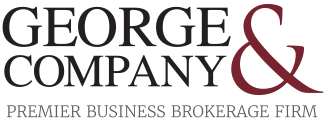508-753-1400
View Blog Posts by Category:
View Blog Posts Tagged with:
Escrow in the Business Market

When it comes to buying or selling a business, there is a lot of trust involved. Trust in the buyer to be able to produce the funds to buy the business; trust in the seller to accurately show his business financials, assets, and intellectual properties. When there’s hundreds of thousands of dollars on the table both sides can become worried about what the other side is doing (or not doing). This is when the experience of third party intermediaries and their escrow accounts help build trust between buyers and sellers.
Business Broker Escrow Basics
Escrow is a simple system whose complexity is dependent on the interested two parties, taking on the form of conditions, with the business broker wearing the hat of the escrow agent usually having suggestions to both parties about what conditions should be established. Once the conditions are set, the buyer deposits a payment into the escrow account (usually a portion of the payment for purchase of the business). Once conditions are met and closing paperwork has been signed, the funds in the account are turned over to the seller or other parties as stipulated in the escrow agreement.
Setting the Escrow Conditions
Escrow allows both the buyer and seller to set conditions that they must meet before the transaction is completed. Even before any additional conditions are set, setting up escrow shows two things: buyer intent and at some measure of their ability to pay. Common additional escrow conditions are:
Escrow Conditions as a Buyer
One of the biggest risks to a buyer is finding out after purchase is some previously overlooked or undisclosed problem that requires expensive repair or affects projected profits. An escrow account allows the buyer to solve potential problems before they occur.
- Valuation and Accounting: With the escrow account showing intent to buy, it becomes much easier to convince buyers to produce a Letter of Intent (LOI) and undergo and the due diligence process.
- Inspections: Inspections of the building and assets are vital before the sale to avoid surprises after purchase.
- Repairs, Replacements, and Modifications: If the valuation, accounting, or inspections raise any previously unknown issues, this places the burden of any changes on the seller.
- Secured Promissory Notes and Earn Outs: It is not unusual in business sale transactions for a certain amount of the selling price to be placed in escrow for release at a later date. Reasons can be as simple as the seller exhibiting that all encumbrances of the company have been paid, to fractional payments made monthly or quarterly and being tied to the future financial performance of the company.
Escrow Conditions as a Seller
As a seller escrow is a great way to take the temperature of the buyer, not only in terms of their commitment to buying your business, but also to establish their good credit.
- Skin in the Game: All too often, a seller may be reluctant to open the books of the company without a certain amount of earnest money placed in escrow.
- Qualifying for Financing: For most buyers, they will have to secure outside financing (usually in the form of a business loan) to purchase the business. This allows the buyer access to requisite documents to apply for financing.
- Earnest Money: Actually a separate escrow transaction, earnest money is a smaller payment put forward by a buyer in escrow to show their seriousness in making the purchase. This is often linked with signing a contingent purchase agreement or LOI.
George & Company is one of the oldest business brokers in New England with over 35 years in the industry, and an escrow agent as a division of Central Mass. Escrow Services, Inc. (CMES), a licensed and bonded escrow corporation duly organized and in good standing in the Commonwealth of MA since 1986. If you want to learn more about using an escrow account when buying or selling a business or any other financial transaction, contact us today and learn how securing your transaction with escrow can work to the mutual benefit of both parties.
